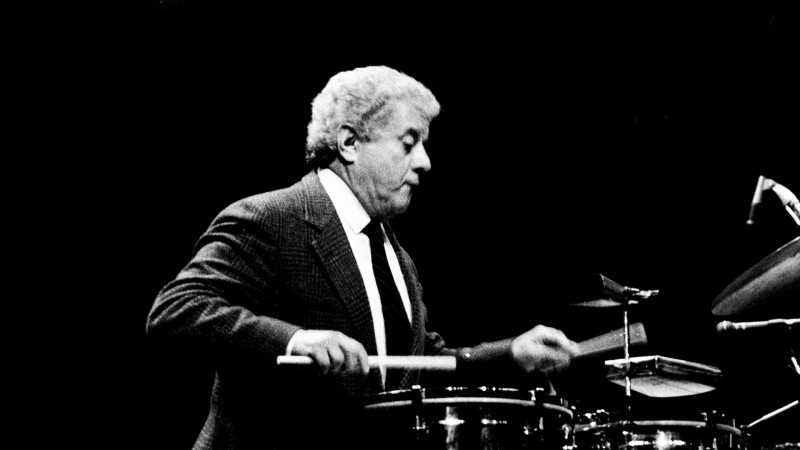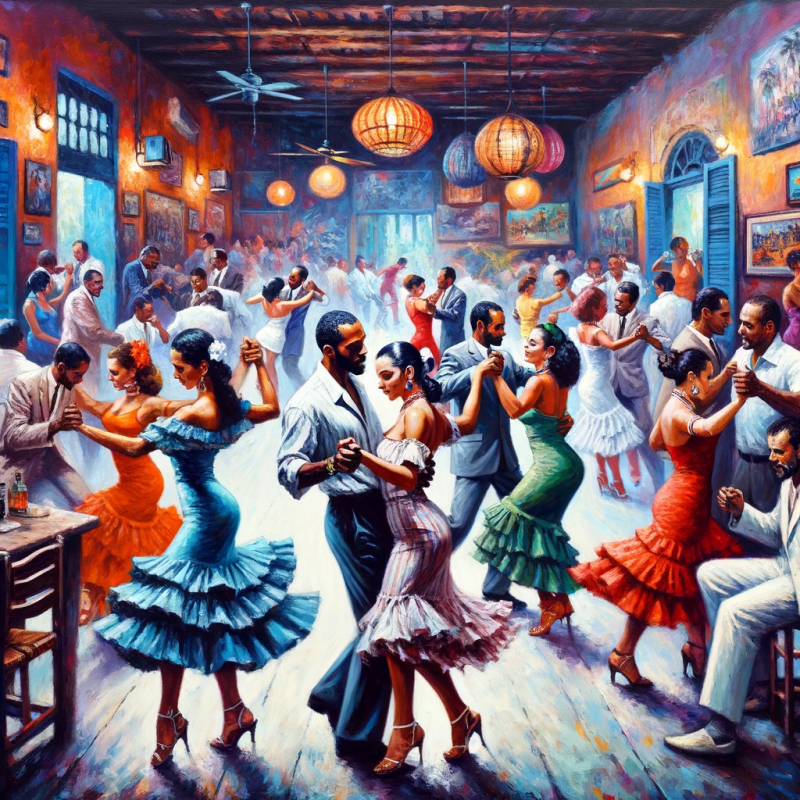Tito Puente: The Rhythmic Heartbeat of Latin Dance
Published on February 11th 2024, 11:21AM Last modified on February 11th 2024, 11:23AM
In the pantheon of Latin music legends, Tito Puente stands as a towering figure whose beats have set the pace for countless dancers across the globe. Known affectionately as "El Rey" (The King), Puente's mastery over the timbales has not only crowned him the King of Latin Jazz but also established him as a foundational pillar in the world of Latin dance. For enthusiasts seeking to trace the rhythm of their steps back to its source, Tito Puente's contributions to mambo and salsa music are indispensable chapters in the history of Latin dance.
A Musical Prodigy
Born in New York City in 1923 to Puerto Rican parents, Puente's musical journey began at an early age. His talent for percussion was evident, leading him to the Juilliard School of Music, where he honed his skills in composition and orchestration. However, it was his innate ability to blend Afro-Cuban rhythms with the intricacies of jazz that set him apart, creating a sound that was both innovative and timeless.
Mambo Madness
In the 1950s, as the mambo craze swept across the United States, Puente was at the forefront, driving the frenzy with his energetic performances and compositions. His music invited dancers to the floor with its compelling rhythms and sophisticated arrangements. Tracks like "Mambo Gozón" and "Ran Kan Kan" became anthems in mambo dancing, embodying the spirit and passion of the era. Puente's mambo was more than music; it was a cultural movement that brought Latin rhythms into the mainstream, laying the groundwork for future generations of Latin music and dance.
Salsa and the Sound of El Rey
As the musical landscape evolved, so did Puente's influence. The emergence of salsa in the 1960s and 1970s saw a new generation of dancers and musicians drawing inspiration from the rich tapestry of sounds that Puente had helped weave. Though he was a pioneer in mambo and Latin jazz, his compositions seamlessly transitioned into the salsa repertoire, becoming staples for salsa dancers around the world. "Oye Como Va," perhaps one of his most famous pieces, exemplifies this crossover, offering a rhythm that is irresistibly danceable, whether interpreted by a mambo or salsa dancer.
Tito Puente: The Dancer's Muse
For dancers, Tito Puente's music represents a bridge between the past and present, a connection to the roots of Latin dance that continue to inspire and energize. His ability to create music that feels as vibrant and relevant on today's dance floors as it did decades ago is a testament to his genius. Puente's rhythms invite dancers to connect not just with the music, but with each other, fostering a sense of community and shared joy that is the essence of Latin dance.
Legacy and Influence
Tito Puente's passing in 2000 left a void in the world of music, but his legacy beats on in the hearts of dancers and musicians alike. Festivals, dance competitions, and Latin music events often pay homage to Puente, celebrating his contributions and ensuring that his rhythms continue to inspire new generations. For dancers, stepping to the beats of Tito Puente is not just about moving to the music; it's about being part of a rich historical tapestry that he helped weave.
Conclusion
As we glide across dance floors, lost in the rhythms of Latin music, it's worth pausing to acknowledge the masters who paved the way. Tito Puente's indelible mark on Latin music and dance ensures that his spirit lives on with every step we take. Whether you're a seasoned salsa enthusiast or a newcomer eager to explore the world of Latin dance, Puente's music offers a timeless invitation to experience the joy, passion, and unity of dance.
For dancers and music lovers exploring the rich landscapes of Latin rhythm, Tito Puente remains not just a historical figure, but a continual source of inspiration. As we dance to the rhythms he popularized, we keep the essence of his legacy alive—celebrating the universal language of music and the unifying power of dance.





Comments (0)